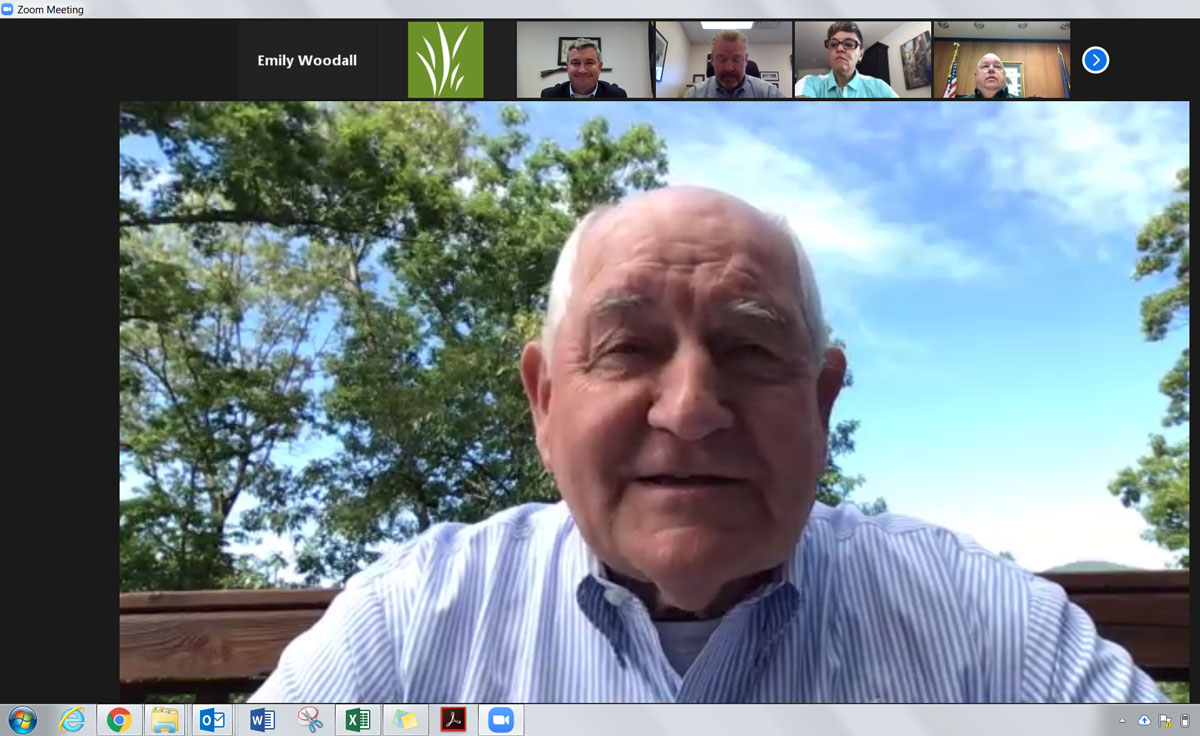 The whole wide (ag) world went Zoom
The whole wide (ag) world went Zoom
Jun 02, 2020
LITTLE ROCK, AR -- Before COVID-19, many people were anxiously anticipating a trip to Lexington, Kentucky, this week for the Southern Association of State Departments of Agriculture (SASDA) conference. SASDA is comprised of ag commissioners from Alabama, Arkansas, Florida, Georgia, Kentucky, Louisiana, Maryland, Mississippi, North Carolina, Puerto Rico, South Carolina, Tennessee, Texas, Virgin Islands, Virginia, and West Virginia. The annual conference is held every June and the meeting location rotates to the SASDA president’s home state.
Kentucky Commissioner of Agriculture Dr. Ryan Quarles was looking forward to showcasing his state’s diverse agriculture portfolio – from hemp to bourbon to thoroughbreds – in person. Unfortunately, pandemic restrictions mandated the meeting go virtual for health and safety reasons.
The online meeting started off with remarks from Senate Majority Leader Mitch McConnell (R-KY) and U.S. Secretary of Agriculture (USDA) Sonny Perdue. Secretary Perdue discussed the Coronavirus Food Assistance Program (CFAP), Farmers to Families Food Box program, and trade relations with China, which he feels are on track and proceeding as expected.
Dr. Mike Strain, Louisiana commissioner of agriculture and forestry, thanked Perdue for his tireless efforts during this unprecedented time and inquired about including crawfish producers in the next CFAP. “In Louisiana, we have 24,000 acres of crawfish and those producers took an 80 percent hit to their industry this year. Aquaculture is big business in Louisiana. The majority of the fresh seafood consumed in America is from Louisiana farms or caught off our coast in the Gulf of Mexico. It is imperative that we recognize the importance of this industry and assist these farmers as we are assisting all other aspects of production agriculture.”
Perdue agreed this needed to be addressed along with other industries, such as horticulture and seafood, that were not included in the original program. “If they’re farmers, we (USDA) think they’re ours and we want to take care of them,” he said.
Next, a panel of speakers including Dr. Will Snell, agricultural economist with the University of Kentucky College of Agriculture; Bill Johnson, president and CEO of Farm Credit Mid-America; and Joseph Sisk, a Kentucky corn and hemp producer, discussed the state of the agricultural economy.
Snell estimated that 30-50 percent of farm income this year will likely come from government assistance. Johnson, who offered his opinion from a lender’s viewpoint, added that one positive during this time is that land values continue to hold steady. Sisk believes that the effects of the current ag downturn will be harder psychologically than that of the 1980s because of the higher input costs. He also said that Market Facilitation Payments (MFP) payments are essential, and if they were removed, the agriculture industry would have huge financial stress.
The meeting also included National Association of State Departments of Agriculture (NASDA) and Southern United States Trade Association (SUSTA) updates, as well as an EPA update.
Region 4 EPA Administrator Mary Walker discussed the efforts the EPA has taken recently to test and approve effective disinfectants against coronavirus while also working closely with U.S. Customs to prevent ineffective, imitation disinfectants from entering the country. In online markets, there has been an increase in items claiming to protect the wearer from being exposed to the virus or claiming to contain an effective disinfecting agent when they don’t.
At the close of the meeting, Commissioner Quarles passed the virtual gavel on to Arkansas Secretary of Agriculture Wes Ward.
“I’m honored to be the new president of SASDA, and am excited to welcome everyone to Arkansas, often called the the rice and duck capital of the world, for next year’s annual meeting,” said Ward.